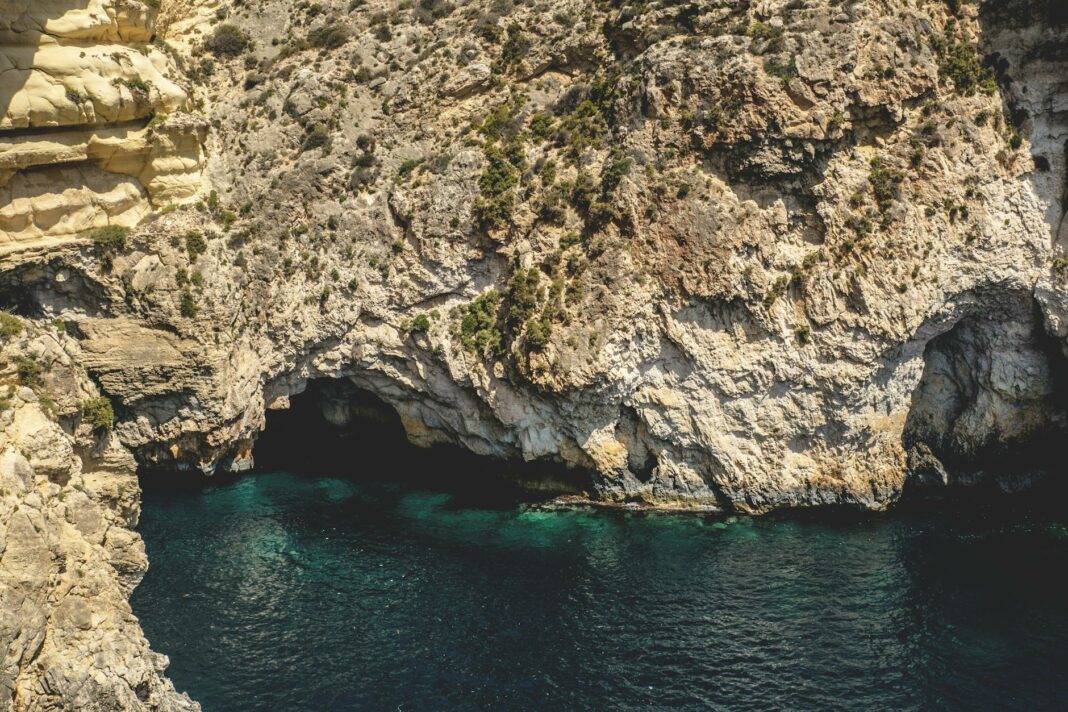**Table of Contents**
1. **The Illusion of Eco-Tourism**
2. **Understanding Carbon Footprints**
3. **The Impact on Local Communities**
4. **Wildlife and Ecosystem Disruption**
5. **Sustainable Alternatives for Travelers**
6. **Balancing Enjoyment with Responsibility**
7. **The Bigger Picture: An Eco-Conscious Mindset**
8. **Steering Towards Genuine Eco-Friendly Options**
9. **Moving Forward with Purpose**
10. **Frequently Asked Questions**
Embarking on an eco-holiday often gives the impression of making the world a better place. Travelers frequently envision their adventures as environmentally friendly, but this perception deserves closer examination. Many popular eco-destinations and activities can unintentionally contribute to environmental degradation and social imbalance. Understanding the true impact of our travel choices is vital for ensuring that our vacations align with our sustainable ideals.
A thoughtful exploration into eco-tourism forces a deeper look at hidden consequences beneath the surface. By diving into the concept of eco-holidays, we can identify where our intentions may align or stray from the goal of genuine sustainability. This blog post unravels the complexities of eco-tourism and encourages a mindful approach to sustainable travel that beautifully balances personal enjoyment with environmental responsibility.
**The Illusion of Eco-Tourism**
Eco-tourism often presents a façade of sustainability, yet many travelers remain unaware of its potential pitfalls. For instance, certain eco-resorts promise to provide a low-impact vacation experience while simultaneously consuming vast amounts of resources, such as water and energy. Moreover, the marketing strategies surrounding eco-friendly destinations frequently exaggerate their green credentials. Travelers should be discerning about where they choose to spend their money and the implications their travels have on the environment.
On the flip side, eco-tourism undeniably fosters awareness about environmental issues and can support important conservation initiatives. However, it is crucial to remain skeptical and informed about the true sustainability of these options. By questioning the narrative of what constitutes eco-friendly travel, we equip ourselves to make better choices that genuinely honor our commitment to the planet.
**Understanding Carbon Footprints**
Each travel decision adds to an individual’s carbon footprint, a fact often overlooked. Flying thousands of miles to an exotic destination significantly contributes to greenhouse gas emissions. While some eco-lodges offer carbon offset programs, many fail to truly compensate for the ecological damage linked to air travel. These offsets can sometimes create a false sense of security, leading travelers to believe they are actively combating climate change when, in reality, they remain contributors to it.
Exploring more sustainable ways to travel—like choosing local destinations, embracing public transportation, or engaging in immersive experiences—can drastically reduce one’s carbon footprint. Not only does this approach benefit the environment, it also enriches the traveler’s experience, bringing them closer to the cultures they are eager to explore. Understanding the impact of travel on the environment invites a more conscientious mindset, enabling travelers to live their eco-friendly ideals through every aspect of their journey.
**The Impact on Local Communities**
Tourism, even under the guise of eco-friendliness, can have a profound effect on local communities. When outsiders flock to small villages in search of pristine landscapes, the influx of visitors may overwhelm the local infrastructure, alienating residents and pushing up prices. In some cases, traditional ways of life become overshadowed by the commercial demands of tourism, leading to the erosion of cultural heritage and community disintegration.
Conversely, responsible tourism has the potential to empower local communities. By supporting locally owned businesses and participating in cultural activities, travelers can help ensure that the economic benefits of tourism remain within the community. Ultimately, fostering genuine connections with locals cultivates mutual respect and understanding, creating a win-win scenario that honors both the traveler’s experience and the community’s wellbeing.
**Wildlife and Ecosystem Disruption**
When planning an eco-holiday, many travelers may not grasp the impact of their presence on fragile ecosystems. Certain activities, such as wildlife encounters or nature excursions, can disturb habitats and threaten native species. While tourists may be eager to observe animals in their natural environment, the very act of doing so can lead to stress for wildlife and long-term ecological damage.
Instead, to truly honor the environment, consider supporting organizations that prioritize conservation and responsible wildlife viewing. Engaging in eco-conscious choices enhances the overall travel experience while promoting the health of wildlife populations. Choosing to observe nature from a distance can yield just as much joy without imposing unnecessary strain on the ecosystem.
**Sustainable Alternatives for Travelers**
With the challenge of eco-tourism in mind, numerous alternatives can satisfy one’s adventurous spirit while being more mindful of the impact on the planet. Eco-volunteering, for instance, allows travelers to contribute directly to conservation efforts in their chosen destination, creating a meaningful connection that extends beyond simple observation.
Additionally, exploring local treasures fosters appreciation for nearby nature and culture, eliminating the need for extensive travel. Not only does this option benefit the environment, but it also provides an opportunity for authentic experiences and lasting memories. Embracing sustainable practices in travel makes a difference that can ripple through various communities and ecosystems.
**Balancing Enjoyment with Responsibility**
Travel should be a fulfilling pursuit that brings joy and discovery. Nonetheless, striking a balance between enjoyment and moral responsibility is crucial. Many travelers find themselves at odds, torn between the lavish experiences advertised in eco-tourism and the conscientious choices they strive to uphold.
By cultivating a mindset that prioritizes sustainability, enjoyment and responsibility can coexist harmoniously. Consider immersing oneself in eco-friendly activities that inspire, educate, and provide a positive impact on both the traveler and the destination. Transforming the travel landscape begins with the individual’s outlook and steadfast commitment to making choices that align with environmental and social well-being.
**The Bigger Picture: An Eco-Conscious Mindset**
Developing an eco-conscious mindset involves rethinking travel habits and recognizing the interconnectedness of humans and the environment. With a robust understanding of how individual choices contribute to global challenges, travelers can make informed decisions that reflect their values.
This shift in perspective not only enhances the travel experience, but it also elevates the shared responsibility of nurturing the planet. In this light, eco-holidays cease to be mere vacations; they become transformative journeys that inspire change and promote sustainable practices. By adopting an eco-conscious mindset, travelers can become advocates for the world they cherish, encouraging others to do the same.
**Steering Towards Genuine Eco-Friendly Options**
To differentiate between genuine eco-friendly options and those that merely claim sustainability, travelers must seek transparency and accountability. Researching businesses and engaging with communities allows explorers to support companies truly committed to environmental stewardship.
Moreover, prioritizing certifications from established environmental organizations can offer peace of mind when choosing accommodations and activities. Genuine eco-travel experiences cultivate a sense of trust, leading to partnerships that prioritize sustainability and the health of the environment. As travelers shift their focus toward authentic eco-friendly options, they can ensure that their journeys align with their values.
**Moving Forward with Purpose**
As we navigate the intricacies of eco-tourism, it becomes increasingly clear that motivation must lie in the intent to promote sustainability actively. Traveling with awareness leads to a deeper understanding of interdependencies between humans and nature, establishing an ethos of care and protection for the planet.
By embracing purposeful travel, individuals can craft experiences that honor the environment and the people within it. Making a conscious effort to prioritize sustainability lays the groundwork for future generations, encouraging a culture of ecological mindfulness and responsible citizenship.
**A Pathway Towards Meaningful Travel**
In conclusion, while the allure of an eco-holiday can be enticing, it is crucial to evaluate the impact of our travel choices critically. There is exceptional power in being a mindful traveler, one that seeks not just to partake in breathtaking adventures, but also to contribute positively to the world. By fostering genuine relationships with local communities and supporting sustainable initiatives, we can ensure that our travel experiences uplift both the environment and ourselves.
**Frequently Asked Questions**
1. What defines true eco-tourism?
True eco-tourism focuses on responsible travel practices that benefit local communities and protect natural environments, avoiding tourism practices that harm these spaces.
2. How can I minimize my carbon footprint while traveling?
Consider using public transportation, traveling closer to home, and choosing eco-friendly lodging options. Engaging in carbon offset programs can also be beneficial.
3. Are there specific certifications to look for when choosing eco-friendly travel services?
Yes, look for certifications from organizations like Green Globe, Rainforest Alliance, or similar established entities that ensure genuine commitment to sustainability.
4. Can eco-tourism positively impact local communities?
When managed properly, eco-tourism can bring economic benefits and awareness to communities, promoting conservation and maintaining cultural heritage.
5. How do I know if a resort or travel company is genuinely sustainable?
Research their practices, seek reviews, and ask for transparency regarding their sustainability efforts to assess their genuine commitment to eco-friendly practices.
Image Credit: Pexels





